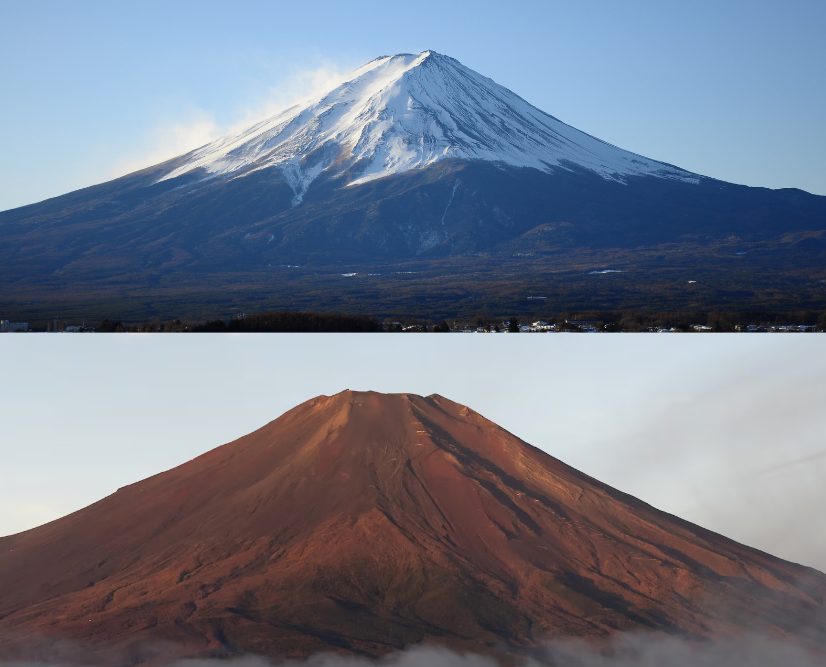Mount Fuji, one of Japan’s sacred mountains and a popular tourist destination is recognized for its breathtaking snow-covered peaks. However, this year, snow did not grace the mountain’s summit until Nov. 6, marking the longest the volcano has ever gone without snow, surpassing the previous record by a week. The culprit? Scientists point fingers to climate change.
Typically, Mount Fuji begins to produce snow on Oct. 2. The previous record, which last occurred twice, in 1955 and 2016, cited Oct. 26 as the latest snowfall date. However, unusually high temperatures in Japan have pushed these dates further back. The average temperature this past summer in the region was 3.17 degrees Fahrenheit higher than the 1991–2020 average, according to the JMA weather station. This marks the hottest summer in Japan for the second year in a row.
“With temperatures measuring in the 50s and 60s on Mount Fuji, [it] is impossible for snow to generate,” ABC News reports.
Briar Woods AP Environmental Science teacher Ms. Hall lends some insight into the situation, “It depends but in general, because of warming temperatures the window of when snowfall appears sort of shortens, if you want to think about it that way. And so because of that, less snow falls overall and you have less snow buildup making it so it melts quicker.”
Hall adds on, saying, “Because [Mount Fuji] is surrounded by water, warming sea temperatures also have a greater effect. Warming sea temperatures lead to warming air temperatures. This does lead to precipitation but in this case not in the form of snow. This actually causes too much precipitation in some areas.”
These problems do not only affect Mount Fuji, however. Other popular mountains and mountain ranges, such as Mount Kilimanjaro, are also losing their snowpacks at an alarming rate. While this is upsetting, it serves as a stark reminder of the real-time effects of climate change.
Zaydan Arisandy, 11, believes that “there is enough awareness about climate change, it’s just that people just don’t want to do anything about it.”
“It is sort of hard for us as humans to wrap our heads around global warming since it seems so far removed from our own lives, especially when we have short-term concerns to focus on like getting food on the table,” Hall explains. “Because I get to talk about it everyday, it is a big concern in my life. When you look at the data it’s alarming. But I have hope that it’s not too late.”
These visible changes in natural landscapes highlight the urgency of addressing global environmental challenges. The need for concerted action becomes even more critical. The hope in reporting on these topics is to inspire individuals, communities, and governments to work together to mitigate further damage and protect the planet for future generations.






































